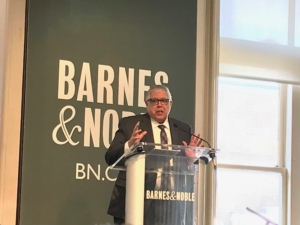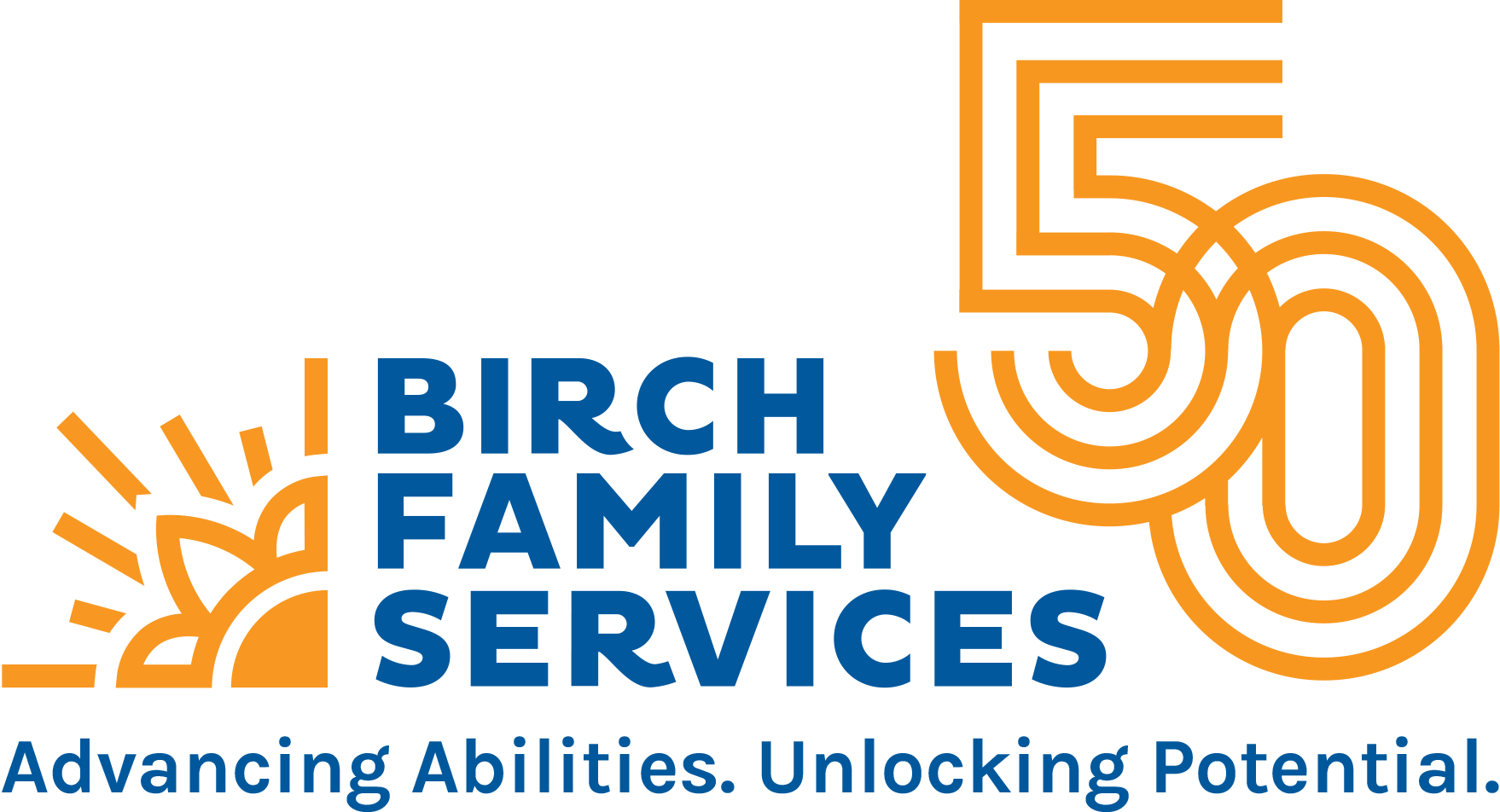What About Us: Birch CEO Calls for Cost of Living Adjustment at Manhattan DD Council Legislative Breakfast
Matt Sturiale called on the NYS Assembly and Senate to add to each of their house bills a 2.9% Cost of Living Adjustment to this year’s budget.
On March 8, 2019, the Manhattan Developmental Disabilities Council held its 31st Legislative Breakfast. Each year, the annual event brings together legislators, advocates, and other stakeholders in the New York developmental disabilities community to advocate for the expansion of critical services. This year’s event had invited guests present with a focus on workforce issues for Direct Support Professionals, the expansion of residential services, special education at 4410 and 853 schools, and a call for a fair Cost of Living Adjustment (COLA) for not-for-profit service providers dependent on state funding to meet the needs of the individuals who they support.
NYS Senator Brad Hoylman, NYS Assemblymember Richard Gottfried, NYC Council Member Carlina Rivera, Manhattan Borough President Gale Brewer, and Deputy Executive Commissioner Roger Bearden from NYS OPWDD were in attendance, supportive of the budget requests made by the Council, and encouraged members to continue to advocate for their priorities as the budget negotiation process gets underway.
 Birch Family Services President and CEO Matt Sturiale presented on the desperate need for a Cost of Living Adjustment for not-for-profit providers. Read Matt’s full presentation below.
Birch Family Services President and CEO Matt Sturiale presented on the desperate need for a Cost of Living Adjustment for not-for-profit providers. Read Matt’s full presentation below.
“We’ve seen an exodus of talented and committed staff at many levels feeling underappreciated or unrecognized.”
COST OF LIVING ADJUSTMENT
Presented by Matt Sturiale
Chief Executive Officer, Birch Family Services
Good morning. I am the president and CEO of Birch Family Service — a large not-for-profit multi-service organization that supports individuals with autism and developmental disabilities and their families across New York City.
Today, I am here to speak representing not-for-profit providers across our great state, which are almost exclusively dependent on state funding to meet the needs of the developmental disability community and the workforce that supports them.
I am asking the NYS Assembly and Senate to ADD TO EACH OF THEIR HOUSE BILLS a 2.9% Cost of Living Adjustment (COLA) to this year’s budget. The overall cost for all the human services, not just developmental disabilities, would be $140 million (State share).
Let me highlight some of the reasons why this is a critical item to support.
1. Not-for-profit organizations are linchpins of many NY communities providing critical services and resources to individuals and families. The evolution of supports and services for the developmental disability community since the early 1970s has been based upon a partnership amongst constituents (individuals/families), providers, and government. Your support of a 2.9% COLA is essential to sustain and strengthen providers.
About a decade ago, the NYS Legislature codified a statutory COLA for not-for-profit organizations. This enabled agencies to increase salaries and address other operational matters such as increased costs associated with rent, utilities, health insurance, liability insurance, workers compensation, pension plan requirements, corporate compliance, facility maintenance, structural improvements, and capacity building in such areas as technology. This act was intended to ensure that state- and Medicaid-funded services would receive a COLA each year. Finally, providers had something that we all need – PREDICABILITY – Predictability enables us to plan, be strategic, efficient, and innovative while projecting a sense of stability and security for all our constituents.
2. Well, NOT SO FAST. In 8 of the last 10 NYS budgets, the COLA was deferred for not-for-profits. There was a 2.08% increase given in 2010 and a .2% provided in 2017. In light of the growing cost of living, lack of a COLA was a virtual cut, compounded by other cuts, “efficiencies,” and unfunded mandates imposed on providers during that period.
3. So, what has been the overall impact of not receiving a COLA?
- Workforce – Recruitment of a quality workforce has been extremely challenging. This limits our ability to support those we currently serve, respond to varying community needs in a timely manner, and plan for future needs. We’ve seen an exodus of talented and committed staff at many levels feeling underappreciated or unrecognized. This leads to significant increases of our overtime and recruitment expenses.
- Quality – the frequency of turnover in frontline positions (direct support professionals, job coaches, frontline managers, teachers, clinicians) makes it difficult to deliver the high-quality services expected by our individuals and families. Many providers have been operating at a 15% to 20% vacancy rate over the past two years. Some providers are even higher than that. This challenges our ability to maintain health and safety requirements, facilitate person-centric activities, and respond to the emerging needs of individuals and families.
- Reduction in Services and Program Closures – At a time when the people we support are more included and integrated in their communities, providers are struggling with the ability to maintain innovative and valuable services that keep families together and facilitate independence. Providers are looking very closely at their “bottom lines” in each program and deciding to close those that cannot be self-sufficient.
- Operating Expenses – The general cost of doing business has not been flat. Providers are constantly looking for ways to streamline processes and reduce costs. This cannot happen without a COLA. For example, in the past five years, our rent increased by 15%; we changed our health insurance carrier three times with increases still rising significantly (almost 6% this year). This makes it difficult for our staff to afford to pay a contribution for dependent coverage. An employee earning $30,000 and in need of family coverage will pay $22.96 more per paycheck ($551 annually).
- Minimum Wage Increase Has Had a Positive Impact on Our Workforce BUT direct support is not a minimum wage job. Direct support professionals provide hands-on care that ensures the health and safety, and even the survival, of our very vulnerable individuals. During the last three years, those working in many of our entry level positions ($11.50-12 per hour) have seen their salaries increase by 30% and are now earning $15 per hour. Our veteran staff with more education and experience, earning slightly more ($14-15 per hour) during that same period have seen their salaries increase by 6.5%, or less than $1 per hour. Our valued staff are asking, WHAT ABOUT US?
4. I understand that there are a lot of varying interests seeking additional resources from government. How do you choose which constituents to support? I ask you to consider this:
- Not-for-profits are a major employer in many communities.
- Over the last 10 years, the NYS budget provided a COLA for all state-operated programs; not-for-profits received a mere 2.1% during the same period.
- Since 2012, the public school district received a 42% increase in state aid, but the non-public special education 4410 preschools and 853 schools received only a tiny fraction of that. I ask again, WHAT ABOUT US?
I ask you to DO THE RIGHT THING AND PASS THE 2.9% COLA IN YOUR ONE HOUSE BILLS and secure the Governor’s support.
